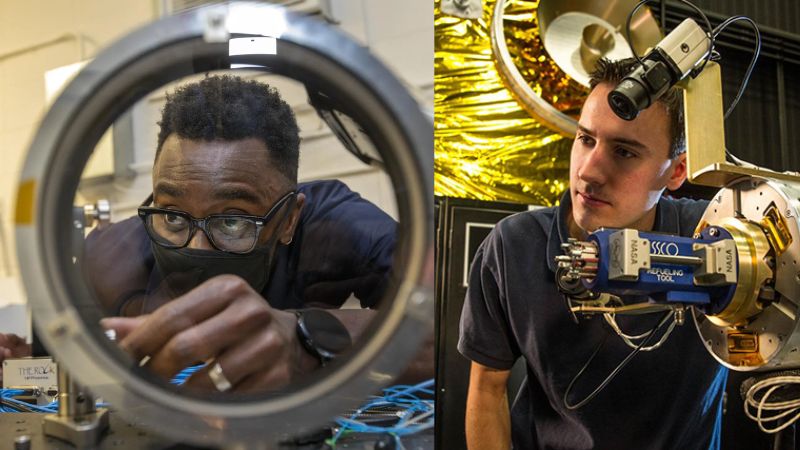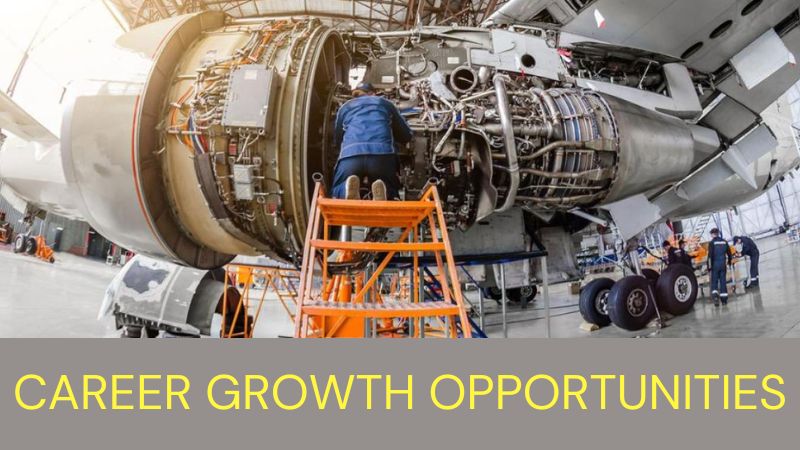Aerospace engineering is a dynamic field that pushes the boundaries of human ingenuity, and NASA stands at the forefront of space exploration. For many aspiring aerospace engineers, a career at NASA represents the pinnacle of achievement. One crucial aspect that often captures the attention of professionals in this field is the aerospace engineer salary at NASA. In this article, Bumblescience will delve into the intricacies of compensation for aerospace engineers at NASA, shedding light on the factors that influence salaries and what prospective employees can expect.
Understanding the Role of Aerospace Engineers at NASA:
Aerospace engineers at NASA play a pivotal role in designing, testing, and developing cutting-edge technologies for space exploration missions. They work on a diverse array of projects, ranging from spacecraft design and propulsion systems to robotics and mission planning. These engineers collaborate closely with scientists, mathematicians, and technicians to tackle complex challenges and push the boundaries of human spaceflight.
Aerospace Engineer Salary at NASA Overview:
Now, let’s delve into the focal point of our discussion: aerospace engineer salary at NASA. Salaries for aerospace engineers at NASA are competitive and reflective of the specialized skills and expertise required for the job. The compensation package typically includes base salary, bonuses, benefits, and opportunities for career advancement. The exact salary range can vary depending on several factors, including experience, education level, job role, and location.
Factors Influencing Salary:
Experience: Experienced aerospace engineers with a distinguished track record of accomplishments often hold positions that command higher salaries within the organization. With each passing year, as they accumulate valuable experience and expertise in the field, their contributions to NASA become increasingly invaluable, potentially resulting in salary advancements and recognition for their significant contributions to the aerospace industry.
Education Level: A higher level of education, such as a master’s or doctoral degree in aerospace engineering or a related field, can positively impact salary prospects. Individuals with advanced degrees often possess specialized knowledge and skills that are highly sought after by NASA.
Job Role: An aerospace engineer’s salary at NASA can also be influenced by the specific role they occupy within the organization. Those in leadership positions or tasked with overseeing critical projects may command higher compensation compared to entry-level engineers, reflecting the level of responsibility and expertise required for their roles.
Location: The geographic location where aerospace engineers are stationed can significantly impact their salary levels, as it’s often correlated with the cost of living. Engineers working at NASA facilities situated in high-cost areas may receive higher salaries to compensate for the increased expenses associated with housing, transportation, and other necessities.
Benefits and Perks:
Beyond competitive salaries, aerospace engineers at NASA often benefit from a comprehensive package that includes health insurance, retirement plans, paid time off, and professional development opportunities. Moreover, they may have access to unique perks like on-site fitness facilities, flexible work arrangements, and utilization of cutting-edge research facilities. These benefits not only enhance job satisfaction but also contribute to a conducive work environment that fosters innovation and career growth within the organization.
Career Growth Opportunities:
NASA is renowned for fostering a culture of innovation and continuous learning, providing aerospace engineers with ample opportunities for career growth and advancement. Engineers at NASA have the chance to work on groundbreaking projects, collaborate with top experts in the field, and contribute to humanity’s exploration of space. Moreover, the organization encourages ongoing professional development through training programs, workshops, and conferences, empowering engineers to expand their skills and expertise.
Tips for Prospective Employees:
For individuals aspiring to join NASA as aerospace engineers, there are several strategies to enhance their prospects and negotiate competitive salaries:
- Gain Relevant Experience: Prioritize gaining hands-on experience through internships, co-op programs, or research projects in aerospace engineering or related fields.
- Pursue Advanced Education: Consider pursuing advanced degrees or certifications to deepen your expertise and stand out as a top candidate.
- Network and Build Connections: Connect with professionals in the aerospace industry, attend industry events, and leverage networking opportunities to broaden your professional network and gain insights into career opportunities at NASA.
- Stay Updated: Stay abreast of the latest developments and advancements in aerospace engineering through industry publications, conferences, and online forums.
Conclusion:
To sum up, the aerospace engineer salary at NASA is a topic of keen interest for professionals in the field of aerospace engineering. Salaries at NASA are competitive and reflective of the specialized skills, expertise, and contributions of aerospace engineers to the organization’s mission of space exploration. Factors such as experience, education level, job role, and location influence salary levels, with ample opportunities for career growth and advancement within the organization. Aspiring aerospace engineers can enhance their prospects by gaining relevant experience, pursuing advanced education, networking, and staying updated on industry trends. Joining NASA as an aerospace engineer offers not only competitive compensation but also the opportunity to be at the forefront of humanity’s exploration of the cosmos.


